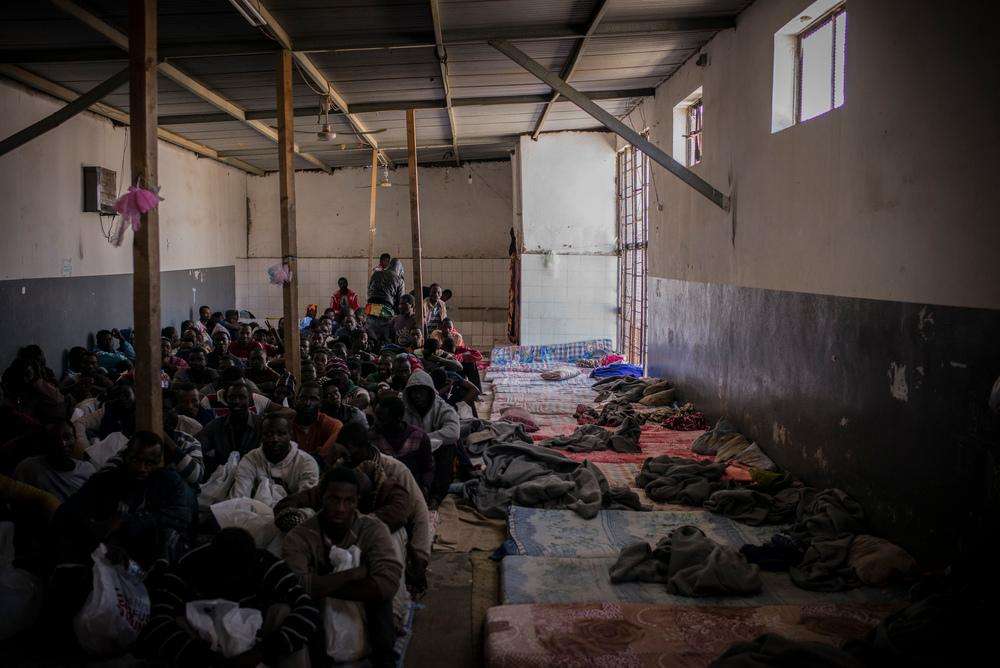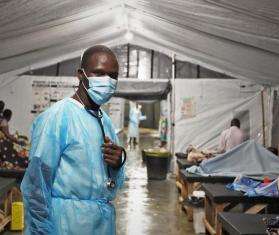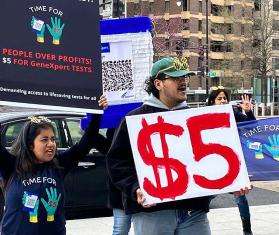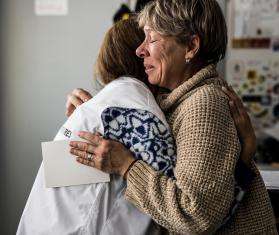In Libya, Doctors Without Borders/Médecins Sans Frontières (MSF) continues to provide lifesaving and primary health care to refugees and migrants detained in the capital Tripoli.
During the first quarter of 2017, more than 4,000 medical consultations took place in seven different detention centers nominally under the control of the Directorate for Combating Illegal Migration (DCIM). Around 1,300 people in detention were treated every month via mobile clinics for conditions including skin disease, diarrheal disease, respiratory tract infections, and urinary tract infections.
These preventable diseases, as well as acute malnutrition, are the direct result of detention conditions. Conditions inside the detention centers do not meet national, regional, or international standards.
MSF remains opposed to the arbitrary detention of migrants, refugees, and asylum-seekers in Libya.
Read More: MSF Warns of Inhumane Detention Conditions in Libya as EU Discusses Migration
It is a difficult choice for MSF to work in an environment where people are kept in conditions without regard for human dignity. However, our hope is that, by being present and providing medical care, MSF can improve the conditions of detention and help alleviate the suffering experienced by detainees in Libya.
MSF is providing medical care within a highly militarized environment. The daily lives of our patients are strongly controlled. Our doctors are not always given full freedom to triage patients or to decide which patients get to see us. The privacy necessary for medical consultations is not guaranteed. In some detention centers, officials do allocate a designated area for MSF doctors to conduct medical consultations in private, but in others they do not.
Adult Malnutrition
The food provided inside detention centers is often insufficient in quantity and quality. In the first three months of 2017, interruptions in food supply were observed in two detention centers, with detainees going for days without any food. As a result, MSF is treating adults suffering from malnutrition. There were 13 acutely malnourished patients in MSF’s therapeutic feeding program in January 2017, 19 patients in February, and 20 patients in March.
Overcrowding
The number of detainees being held in each detention center fluctuates significantly. With no rule of law in Libya, people are held arbitrarily. It remains unclear exactly how the detention system functions. People appear from one day to the next after being intercepted at sea by the Libyan coast guard, arrested on the streets, rounded up in night raids, or brought to a detention center by individuals. Detainees may be suddenly released overnight, or moved to undisclosed locations.
Confining large numbers of people in small spaces causes musculoskeletal pain and allows for the transmission of diseases and infections such as scabies and chicken pox. The number of infectious respiratory diseases is also directly linked to poor ventilation. Although conditions have improved somewhat, MSF observed overcrowded cells throughout the first three months of this year.
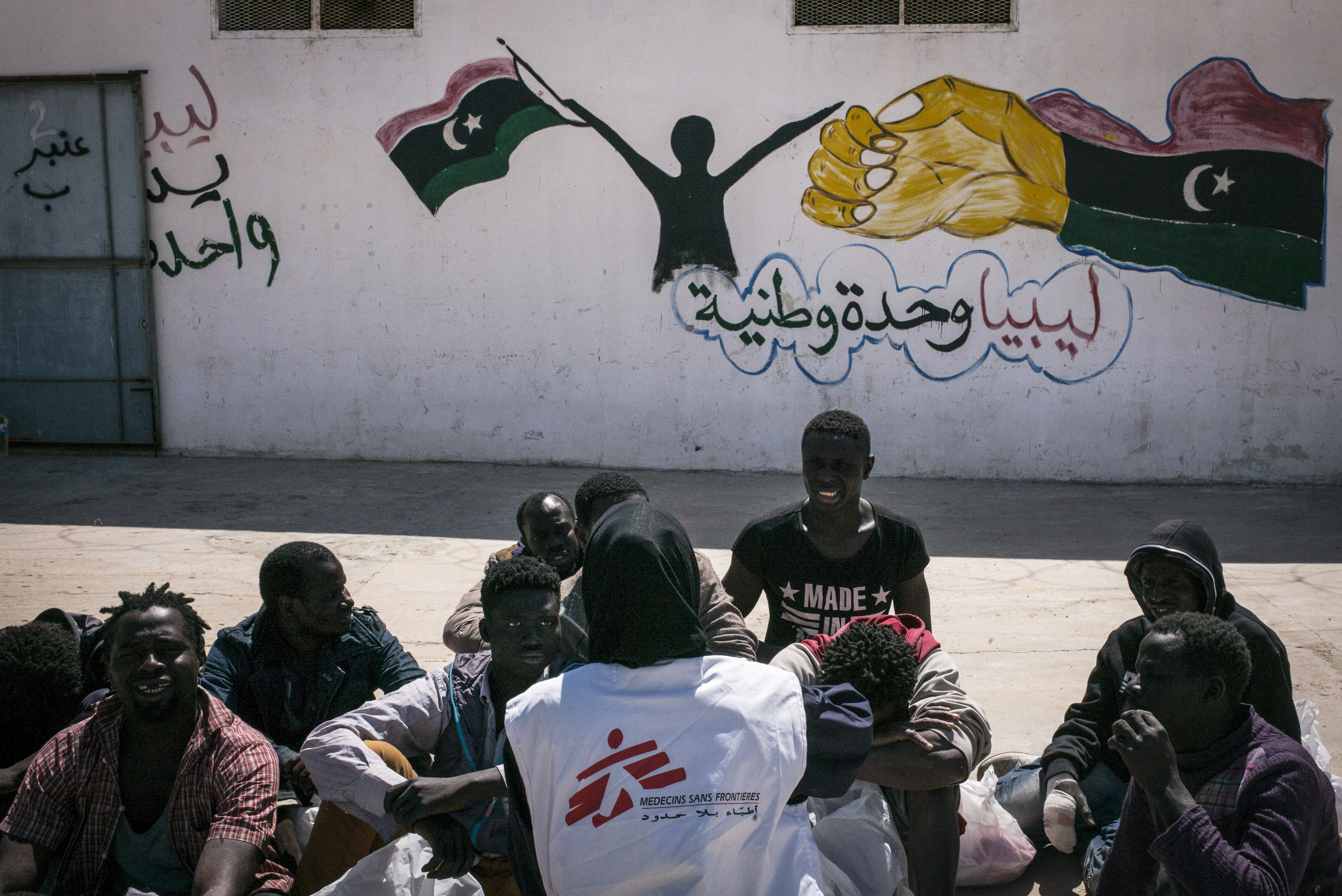
Mental Health Support
Detention has a direct impact on the mental health of detainees who have no immediate prospects to improve their situation, and often no idea why, or for how long, they will be detained.
A large number of detainees suffer from hypervigilance, a condition where people are preoccupied with scanning their environment for possible threats and are easily startled. Many detainees have suicidal thoughts, experience difficulty sleeping, exhibit symptoms of post-traumatic stress disorder (PTSD), and suffer from panic attacks, depression, and anxiety.
MSF runs psychosocial activities in detention centers and carries out individual counseling sessions. Teams provided psychiatric treatment for 17 patients during the first quarter of the year.
Violence-Related Injuries
MSF is treating violence-related injuries including visible scars, bruising, and lacerations. Five people were treated for these in January, eight people in February, and three people in March.
Lifesaving Referrals
In the event of a medical emergency, MSF will attempt to refer people to hospitals in Tripoli. During the first quarter of the year, MSF referred more than 53 people who urgently needed specialized medical care. Each referral is very complicated and time-consuming to organize. Many hospitals do not want to admit detainees.
Access to Drinking Water and Toilets
Access to sufficient and safe drinking water and access to latrines and showers are vital to counter diseases such as skin infections and infestations with lice, scabies, and fleas. In most detention centers visited by MSF, daily water availability now meets or surpasses the minimum quantity for drinking and washing. MSF has installed water tanks, distribution pipelines, and taps in several detention centers in an effort to improve water quality and unhindered access. These distribution systems are regularly inspected and maintained by MSF.
Despite these improvements, frequent power cuts and water shortages in Tripoli mean it is difficult for detention centers to maintain the supply of water. There are only limited possibilities to truck in water from elsewhere.
Unhindered 24-hour access to toilets is not facilitated in all centers. MSF has made efforts to improve hygiene conditions inside the centers and assists with supplying personal hygiene items to all detainees, as well as soap and cleaning materials to maintain sanitary conditions at the premises. However, detainees do not always have unhindered access to the materials distributed, and MSF has observed that items are sometimes confiscated.
